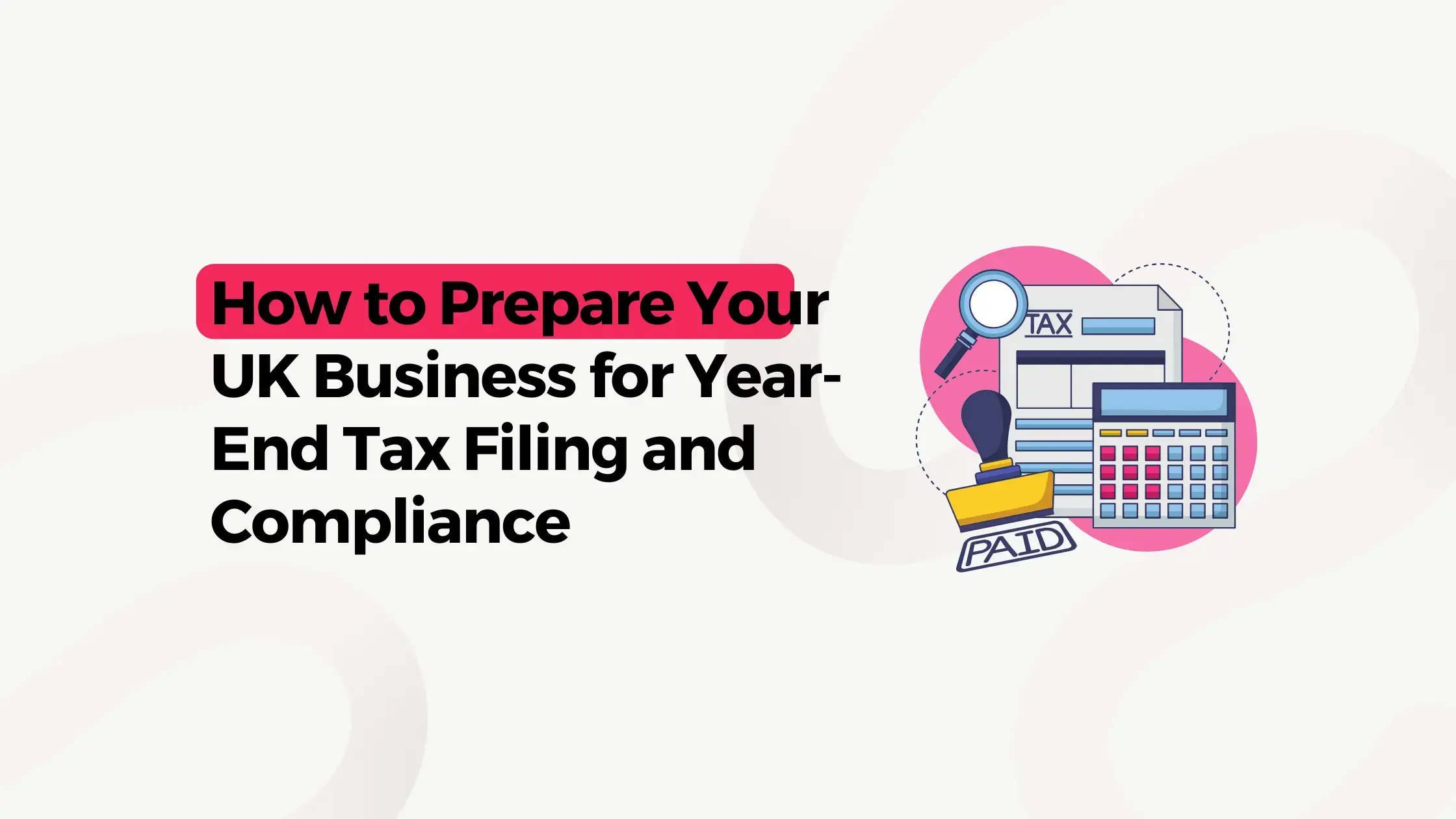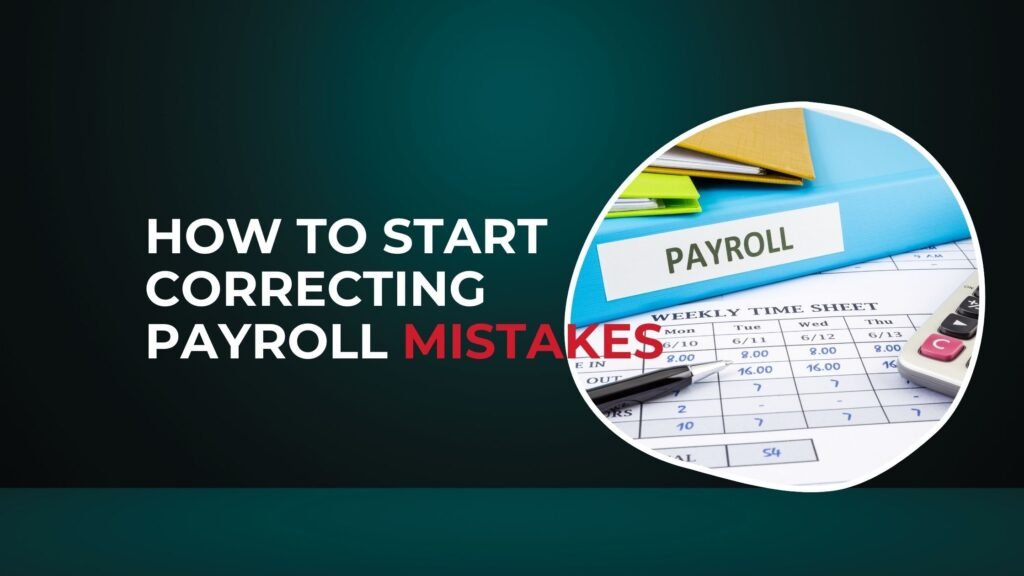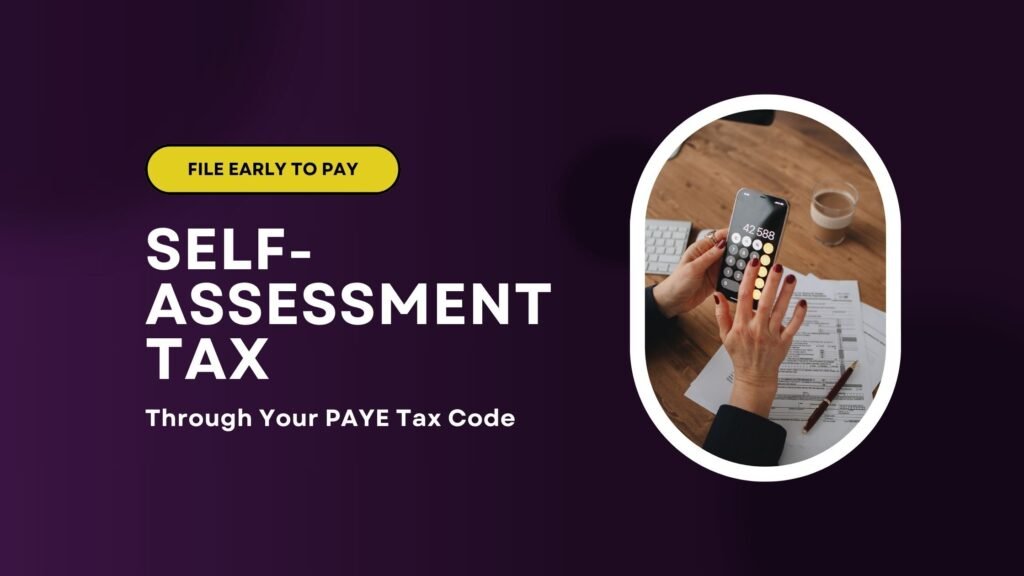Preparing your UK business for year-end tax filing and compliance is essential to staying financially organised and avoiding penalties. Whether you run a small startup or a larger enterprise, preparing for year-end can help you avoid costly mistakes and penalties. In this article, we’ll walk you through everything you need to prepare your UK business for year-end tax and compliance. Whether you run a small startup or a larger enterprise, preparing for year-end can help you avoid costly mistakes and penalties. In this article, we’ll walk you through everything you need to prepare your UK business for year-end tax and compliance.
What Does Year-End Preparation Involve for UK Businesses?
Year-end preparation involves completing tasks to ensure your financial records are accurate, taxes are filed on time, and your business remains compliant. These tasks typically include preparing financial statements, filing corporation tax returns with HMRC, submitting annual accounts to Companies House, and checking VAT returns if applicable. Getting everything in order early can save you time and stress as deadlines approach.
Preparing Your Financial Records for Year-End Reporting
Before filing your tax returns and submitting your accounts, make sure your financial records are accurate and up to date. Here’s how to prepare effectively:
1. Reconcile Your Accounts
Review your bank statements, invoices, and financial transactions to ensure they match your records. Any inconsistencies should be identified, reviewed, and rectified before completing the reports.
2. Review Your Balance Sheet and Profit & Loss Statement
- Balance Sheet: Verify all assets, liabilities, and equity balances to ensure accuracy.
- Profit & Loss Statement: Check that all income and expenses are correctly recorded, and categorize them properly to reflect your business performance.
3. Ensure All Financial Documents Are Available
Having complete records simplifies the filing process and prevents delays. Make sure you have:
- Receipts for all business expenses.
- Invoices for sales and services provided.
- Bank statements covering the full financial year.
4. Review Outstanding Liabilities and Tax Planning
Confirm that all debts, loans, and outstanding payments are accounted for. This helps ensure accurate financial reporting and assists in tax planning by identifying deductible expenses.
5. Consider Depreciation and Asset Valuation
Review fixed assets to check for depreciation adjustments. Ensure asset valuations reflect their current worth and adjust records accordingly.
Limited company accountancy service
Common Tax Deductions and Reliefs for UK Businesses
There are various tax reliefs and deductions available to UK businesses, which can help reduce your tax bill. Some of the most common include:
- Capital Allowances: These enable you to claim tax relief on certain capital expenditures, like machinery or equipment.
- Research and Development (R&D) Tax Relief: If your business is involved in innovation or development, you could be qualified for R&D tax credits.
- Annual Investment Allowance (AIA): This gives businesses tax relief on qualifying capital assets up to a certain limit.
Making use of these deductions can help reduce your total tax liability.
Key Deadlines for Year-End Tax and Compliance in the UK
Meeting key year-end tax deadlines is essential for maintaining compliance. Failing to meet these deadlines leads to penalties, fines, or even legal consequences. It’s important to be aware of the following critical dates to ensure your business remains in good standing:
- Corporation Tax: Your tax return is due 12 months after your company’s accounting period ends. But, the Corporation Tax payment is usually due 9 months and 1 day after the accounting period ends.
- VAT Returns: If your business is VAT-registered, make sure your VAT returns are filed quarterly or annually, depending on your registration.
- Annual Accounts: These must be filed with Companies House 9 months after your company’s financial year-end.
Check with your accountant to ensure you have all deadlines marked on your calendar and are ready to submit your documents on time.
Importance of Corporate Governance and Compliance
Corporate governance ensures your business is compliant with laws and regulations. At year-end, make sure your company’s financial statements meet the required standards and all documents are filed with Companies House. Double-check that your company’s legal structure and filings are in good standing. Proper governance helps prevent legal issues and keeps your business running smoothly.
How to Ensure VAT Compliance at Year-End
For VAT-registered businesses, ensuring compliance is essential to avoid penalties and remain in good standing with HMRC. Follow these steps to keep your VAT records accurate:
1. Reconcile VAT Accounts: Ensure all VAT collected from customers (output VAT) and VAT paid on purchases (input VAT) are correctly recorded. Check for any necessary VAT adjustments, such as bad debt relief or partial exemptions.
2. Submit VAT Returns on Time: VAT returns must be filed using Making Tax Digital (MTD)-compliant software. Most businesses submit VAT returns quarterly, with a deadline of one month and seven days after the end of each VAT period. Late submissions can lead to penalties.
3. Charge and Record VAT Correctly
- Apply the correct VAT rate (20%, 5%, or 0%) based on the goods or services provided.
- Ensure your invoices include your VAT number and a clear breakdown of VAT.
- If your business deals with VAT-exempt or outside-the-scope transactions, ensure these are recorded accurately, as they affect VAT recovery.
4. Maintain VAT Records for Six Years: HMRC requires businesses to keep VAT invoices, receipts, and digital records for at least six years. These records must be accessible in case of an HMRC audit or compliance check.
Filing VAT returns accurately and on time ensures compliance and helps avoid HMRC penalties. If you’re unsure about VAT rules, seeking professional advice can prevent costly errors.
Dealing with Audits and Financial Reviews
Some businesses may face audits or financial reviews, particularly if they have complex financial transactions or large revenues. Here’s how to prepare:
- Organise Your Documents: Ensure all financial documents, including receipts, invoices, and bank statements, are easy to access.
- Prepare for Scrutiny: Be ready for any questions from auditors by having clear explanations for all entries in your financial records.
- Work with an Accountant: If you’re unsure about any aspects of the audit, seek professional advice from your accountant.
Being organised will make the audit process smoother and less stressful.
How Professional Advice Can Help with Year-End Tax and Compliance
While you can handle some of the year-end preparation tasks on your own, seeking professional advice can help ensure everything is done correctly. A tax advisor or accountant can help with:
- Preparing and submitting tax returns.
- Maximising tax deductions to lower your tax bill.
- Filing annual accounts with Companies House.
Consulting a professional can save you time, help you avoid mistakes, and make sure you comply with all tax regulations.
Your UK Business Year-End Checklist
Here’s a simple checklist to help you stay organized with your year-end preparation:
- Reconcile all accounts and financial records.
- Prepare your income statement and balance sheet.
- File your Corporation Tax Return.
- Submit your annual accounts to Companies House.
- Ensure P11D forms are submitted for employee benefits.
- File VAT returns on time.
- Take advantage of available tax deductions.
- Chase unpaid invoices.
- Conduct a stock inventory.
- Review employee data and PAYE contributions.
- Set financial goals for the next year.
- Communicate with stakeholders.
Following this checklist will ensure a smooth year-end process and help your business remain compliant with all tax regulations.
Conclusion
Preparing your UK business for year-end tax and compliance may feel overwhelming, but breaking it into simple steps can make it easier to handle. Accurate record-keeping, meeting deadlines, utilising tax reliefs, and getting professional advice will help ensure your business stays compliant and is positioned for success in the new year.
Need help with year-end tax and compliance? Consult with Cartwheel International to get expert guidance and support.





